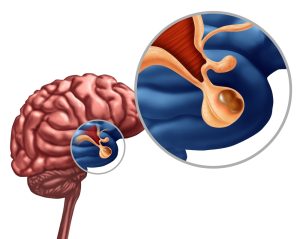Welcome to the Pituitary Tumor Surgery Clinic at Emirates Hospitals Group, where we provide specialized care for individuals diagnosed with pituitary tumors. The pituitary gland, located at the base of the brain, plays a crucial role in hormone regulation. Pituitary tumors, although often benign, can affect hormone levels and cause a range of symptoms. Our team of experienced neurosurgeons, endocrinologists, and healthcare professionals is dedicated to providing advanced, personalized treatments to ensure the best possible outcomes for our patients.
Pituitary Tumor Surgery in Dubai
At Emirates Hospitals Group, we offer a variety of surgical options tailored to the specific needs of each patient. Our approach is designed to provide the most effective and minimally invasive treatments to remove or manage pituitary tumors while minimizing risks. Some of the key procedures we offer include:
- Endoscopic Transsphenoidal Surgery: This minimally invasive technique is one of the most common approaches for pituitary tumor removal. Using a small endoscope inserted through the nose, surgeons access the pituitary gland to remove the tumor, avoiding the need for external incisions. This approach promotes faster recovery and reduces the risk of complications.
- Craniotomy: In cases where the tumor is larger or located in a more complex area, a craniotomy may be necessary. This procedure involves removing a portion of the skull to access and remove the tumor, providing the surgeon with direct visualization of the tumor. The skull is then replaced and secured after the tumor is removed.
- Radiotherapy: In some cases, especially for tumors that cannot be fully removed surgically or those that have recurred, radiotherapy (such as stereotactic radiosurgery) may be recommended. This treatment uses targeted radiation to shrink or control the tumor’s growth.
- Medications: Some pituitary tumors can be treated with medications to shrink the tumor or manage symptoms, particularly when the tumor causes hormone imbalances. These medications can also be used post-surgery to control hormone levels and prevent recurrence.

Recognizing Pituitary Tumor Symptoms
Pituitary tumors can cause a wide range of symptoms due to their effect on hormone production or their pressure on nearby structures. Symptoms can vary depending on the size, type, and location of the tumor. Common symptoms include:
- Hormonal Imbalance: Pituitary tumors can lead to overproduction or underproduction of hormones, leading to symptoms like unexplained weight gain or loss, excessive thirst, fatigue, or changes in menstrual cycles.
- Vision Problems: Because the pituitary gland is located near the optic nerves, tumors can cause vision changes, including blurry vision, double vision, or loss of peripheral vision.
- Headaches: Persistent headaches, often in the forehead or temples, are common in patients with pituitary tumors, especially as the tumor presses against surrounding tissues.
- Fatigue: Unexplained tiredness or lack of energy, often related to hormonal imbalances caused by the tumor, can affect daily functioning.
- Nausea and Vomiting: Increased pressure on the pituitary gland can result in nausea or vomiting, particularly in the morning.
- Infertility or Sexual Dysfunction: Tumors affecting hormone production can lead to fertility issues or sexual dysfunction, including decreased libido or impotence.
- Mood Changes: Hormonal changes due to pituitary tumors can result in mood swings, irritability, or depression.

Pituitary Tumor Diagnosis
Accurate diagnosis is essential for determining the best treatment strategy. At Emirates Hospitals Group, we use advanced diagnostic tools to assess pituitary tumors:
- Magnetic Resonance Imaging (MRI): MRI scans provide detailed images of the brain and pituitary gland, helping to identify the tumor’s size, location, and characteristics.
- Computed Tomography (CT) Scan: A CT scan may be used to provide further details in certain cases, especially for detecting bone involvement or calcifications in the tumor.
- Hormonal Blood Tests: Blood tests are essential to assess hormone levels and determine if the tumor is affecting hormone production. These tests can also help evaluate the tumor’s impact on the body.
- Vision Tests: Because pituitary tumors can affect the optic nerves, vision tests are often conducted to check for visual impairments.
Recovery and Post-Surgery Care for Pituitary Tumor Surgery in Dubai
Recovery from pituitary tumor surgery depends on factors like the size of the tumor, the surgical approach used, and the patient’s overall health. At Emirates Hospitals Group, we provide comprehensive post-surgery care to ensure the best possible recovery:
- Hospital Stay: After surgery, patients typically stay in the hospital for 1-3 days for monitoring and observation. The length of stay will depend on the complexity of the surgery and the patient’s recovery.
- Pain Management: Post-surgery pain management is important to ensure patient comfort. Our team will work with you to control any pain or discomfort you may experience after surgery.
- Hormonal Monitoring: Regular blood tests will be conducted to monitor hormone levels and ensure they return to normal. Hormonal imbalances may require medication to help restore balance and prevent complications.
- Rehabilitation: In some cases, patients may need physical therapy, speech therapy, or vision rehabilitation if the tumor or surgery affected cognitive or motor functions.
- Follow-Up Appointments: Follow-up visits are critical to monitor recovery, assess hormone levels, and ensure the tumor does not recur. Imaging tests will be conducted periodically to track healing and tumor progression.
- Lifestyle Adjustments: We provide guidance on lifestyle changes to promote recovery, such as a balanced diet, stress management, and regular physical activity.


